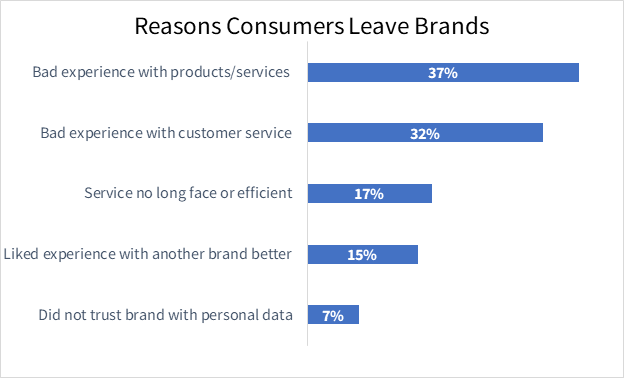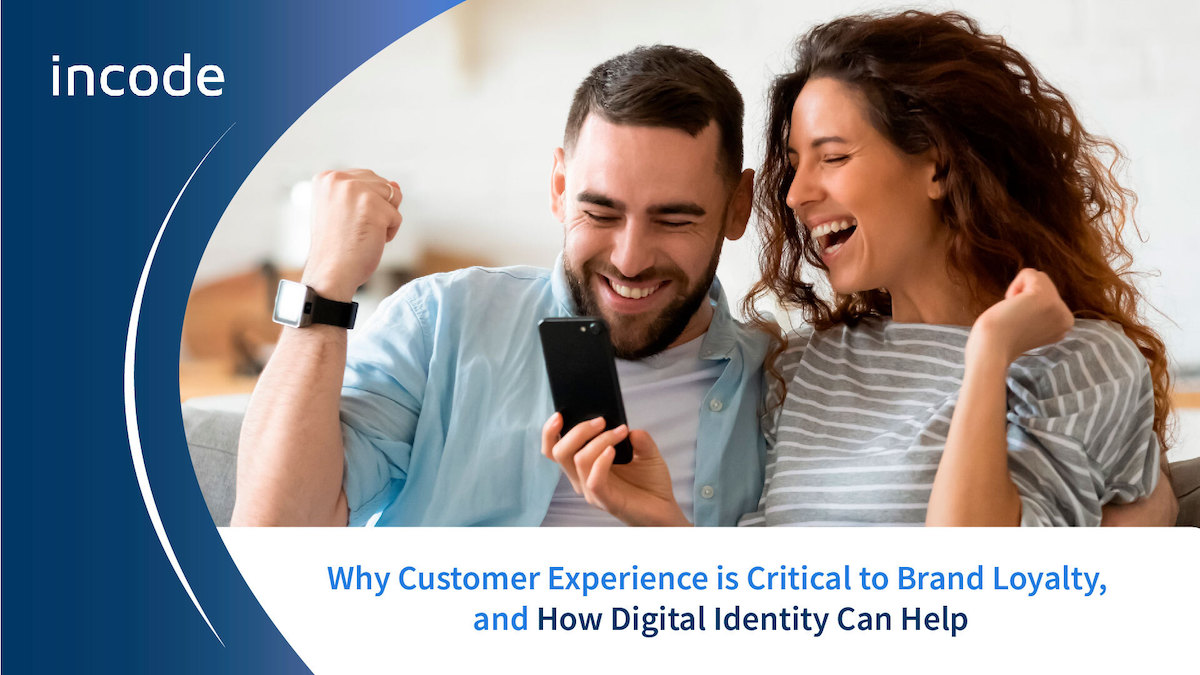Why Customer Experience is Critical to Brand Loyalty, and How Digital Identity Can Help
PwC recently released their 2022 Customer Loyalty Survey, compiling insights from more than 4,000 U.S. participants on consumer behavior two years after the start of the COVID-19 pandemic. The pandemic drastically affected business operations and changed consumer needs, resulting in accelerated digital transformations in organizations and increased tech savviness in customers. PwC notes that technology created “unprecedented connectivity and access to goods and services.” However, PwC further concludes that “volatility in consumer behavior is at an all-time high.” Armed with readily accessible information, consumers are more willing to try new brands and walk away from ones they do not like.
What makes consumers walk away from a brand? According to PwC, “customer experience is critical to loyalty,” and the number one reason a consumer leaves a brand is because of poor experience, whether with the product or service itself, or with customer service. On the other hand, 82% of consumers are willing to share some type of personal data to have a better customer experience.

Improving Customer Experience with Digital Identity
Organizations leveraging digital identity verification (IDV) are better positioned to build exceptional experiences with customers, while enhancing security using trusted technologies. IDV is more secure than knowledge- or token-based verification methods and provides a better customer experience. At Incode, our privacy-by-design architecture ensures end users’ personal biometric information is always safe, and we focus on providing transformative customer experiences. Here are three examples of how Incode’s digital identity technology elevates customer experiences:
1. Fast Onboarding
Incode’s highly intuitive identity verification technology enables users to access desired products or services fast and smoothly. Onboarding processes that are not user intuitive or rely on manual human verification with a slow turnaround time create friction in the process. The resulting slow and clunky onboarding processes put organizations at risk of losing potential customers. In PwC’s survey results, nearly twenty percent (17%) of users said they left a brand because service was not fast or efficient.
With an average onboarding time of 40 seconds, Incode’s onboarding is 5X faster than other IDV solutions based on our recent competitive testing. Our fully automated platform also means end users don’t have to no wait for accurate verification results.
2. Passive Liveness Detection
Remote identity verification often uses liveness detection, a security enhancement to ensure a user is a real person. Liveness detection helps organizations be more resilient to photo or video spoofing attacks. This counter against digital identity spoofing prevents fraud but can also be a source of friction and delay in the onboarding or authentication process, particularly if active liveness detection is used. Active liveness requires the consumer to perform a series of actions in front of the camera, such as blink or smile.
To enhance security and remove friction, Incode uses iBeta-certified passive liveness detection mechanisms where users aren’t required to perform any activity (blinking, smiling) in front of the camera. Instead, Incode technology detects spoofs in a matter of seconds, for example by examining skin texture. Incode passive liveness offers field-proven effectiveness in fight against fraud without compromising customer experience.
3. Elevating Customer Experience
Digital identity can elevate and completely transform the customer experience across industries. Incode has partnered with organizations across verticals to enable trusted and frictionless customer experiences. For example, sports stadiums can facilitate ticketless and smooth entry where users can access the venue identifying only with their face. Or, hospitality providers can offer personalized and welcoming guest experiences along with facial recognition kiosks for faster, contactless check-in and check-outs. Since Incode’s platform is designed to be fully customizable, organizations can adapt their onboarding and verification flows to meet their specific customers’ needs.
PwC’s survey concludes with recommending that organizations recognize the importance of “emotional loyalty” – the way a user feels when interacting with a brand. Digital identity providers can play an important role in driving the overall customer experience when consumers interact with a brand.
To learn how Incode’s identity verification technology can transform the customer experience at your organization, contact us for a demo.
